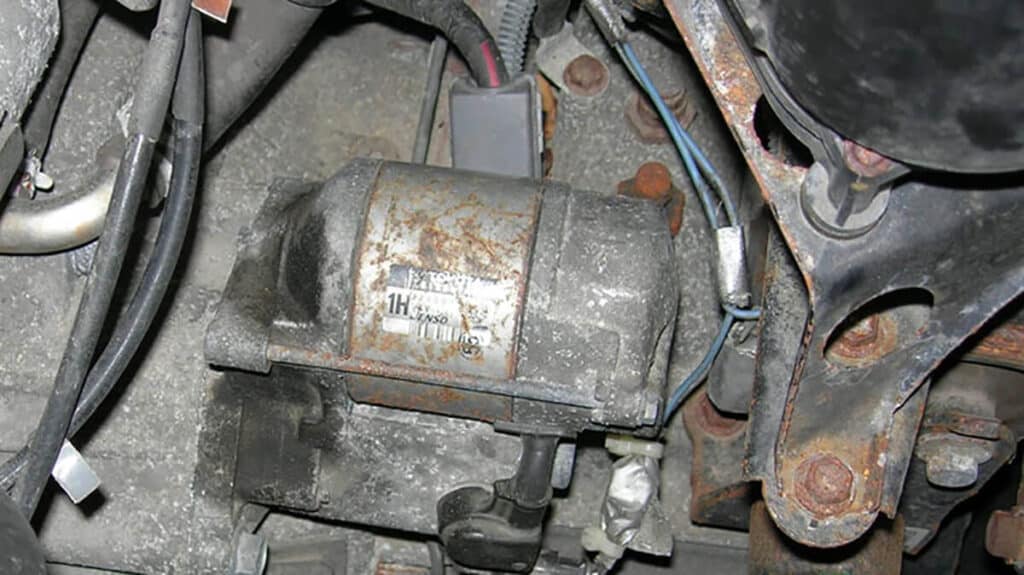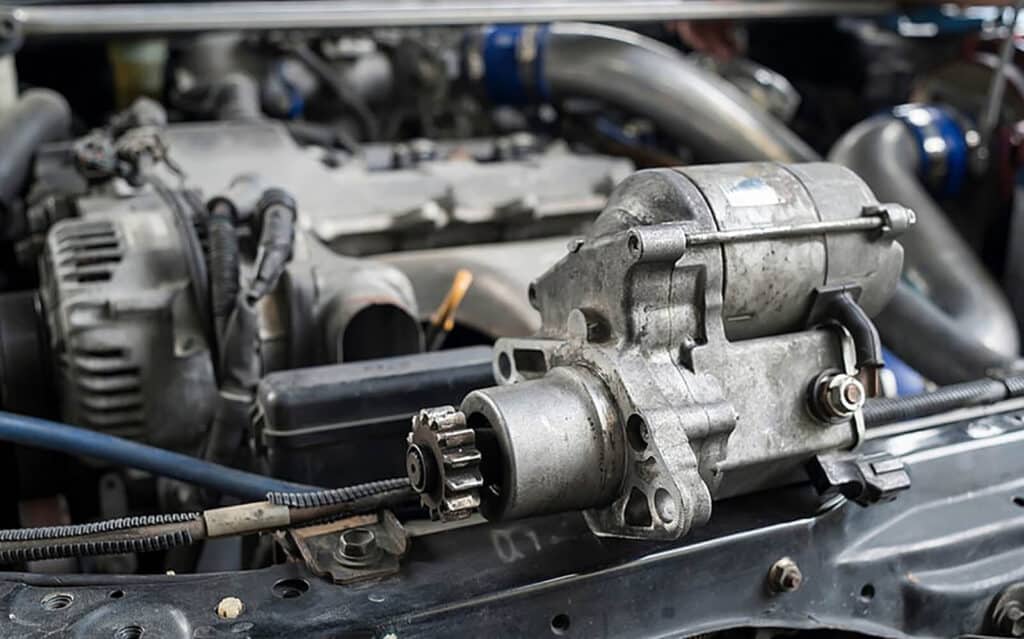Introduction: The Consequences of Neglecting Starter Motor Maintenance
Neglecting your starter motor is like ignoring a toothache: it’s not going to get better on its own, and it could lead to more significant problems down the road. Regular maintenance of your starter motor can help prevent costly repairs and prolong the lifespan of your vehicle.

Assessing Costs: The Expense of Fixing or Replacing a Starter Motor
A starter motor’s price can vary depending on your vehicle’s make, model, and year. An average range could be between $300 and $600, but for some high-end vehicles, you might be looking at a bill that’s closer to $1,000.
This, my friends, is just the cost of the part! Add labor charges to the equation, and the grand total could make you feel like you’ve run a marathon… uphill… in the Canadian winter. For the labor alone, depending on your location and the garage you choose, you could be looking at anywhere between $70-$200. So, a total repair bill could range from a somewhat stomach-churning $370 to a downright dizzying $1,200.
Potential Risks: What Happens If You Don’t Replace a Failing Starter?
Picture this: it’s a brisk Canadian morning. You’re in a rush, you turn the key, and all you hear is a click. Or maybe the engine cranks slowly and then gives up entirely. Ignoring a failing starter can lead to being stranded at the worst possible time.
But the drama doesn’t end there! The longer you ignore a problem with your starter, the more you risk damaging other parts of your car. A faulty starter can lead to a drained battery, as it works overtime to compensate. It can also cause flywheel damage if the starter gear fails to engage and disengage correctly.
Ignoring a failing starter can feel like you’re in a bad soap opera, with a plot involving unexpected breakdowns and potential collateral damage. Best to catch the villain early before it wrecks more havoc!
Lifecycle of a Starter Motor: When Should You Consider Replacement?
The starter motor’s lifecycle is like the circle of life – born in a factory, installed in a vehicle, it lives its life starting your car time and again, and then one day, it gets tired and requires replacement. But when is that day?
Generally, you might start considering a starter motor replacement when your vehicle crosses the 100,000 km mark. However, it’s not just about the kilometers. It’s also about signs – that annoying grinding noise, the smoking gun (literally, sometimes), or the dreaded ‘click but no start’ scenario.
Like a veteran actor knowing when to exit the stage, a starter often gives you signs when it’s time for a replacement. So, when your starter begins behaving like a grumpy old mule, don’t just chalk it up to a bad day. It might be time for a standing ovation and a well-deserved retirement!
Identifying Damages: What Could Go Wrong With Your Starter Motor?
If your starter motor were a movie, it would be an action-packed thriller filled with suspense, drama, and, unfortunately, occasional damages. Potential pitfalls include worn-out components, electrical issues, heat damage, and oil or fluid leaks that could lead to corrosion. For instance, you might notice your car hesitating or laboring to start. Or maybe you’re hearing a grinding noise, which could indicate that the gears that engage the flywheel are worn out. And let’s not forget the good old “click but no start” scenario, which could point to a faulty solenoid or a dying battery.
In a nutshell, your starter motor could face several villains in its plot, each bringing a unique problem to the table. And much like any good thriller, the key is to identify the culprit before the final act!
Ripple Effects: How a Bad Starter Can Damage Other Parts of Your Car
Like a pebble creating ripples in a pond, a bad starter can cause problems that extend far beyond itself. How so? Well, if your starter is struggling, it can put additional stress on your battery, causing it to drain faster. And drained batteries can make it even harder for the struggling starter, turning the situation into a vicious cycle of automotive despair.
But wait, there’s more! If the starter’s gear fails to engage and disengage correctly, it can lead to flywheel damage, turning a solo act of damage into a duet of destruction.
So, a bad starter doesn’t just threaten its own performance – it can instigate a rebellion within your vehicle, causing further problems that can take a toll on your wallet and your peace of mind.

Most Common Culprits: Main Causes of Starter Motor Failures
If we were to round up the usual suspects behind starter motor failures, the lineup would include overheating, electrical issues, oil leaks, and simply wear and tear. Overheating can cause the internal components to expand, increasing friction and reducing efficiency. Electrical problems, such as faulty wiring or a dying battery, can rob your starter of the power it needs to operate correctly. And oil leaks can lead to corrosion that chews away at your starter’s health over time.
In the end, the most common cause of starter motor failure is the passage of time itself. Nothing lasts forever, not even the hardy starter motor. Regular maintenance is the key to prolonging its life and mitigating potential issues that could lead to its premature demise.
Looking at Longevity: How Long Will a Bad Starter Last, and the Lifespan of a Typical Starter
Alright, folks, let’s get real. How long will a bad starter last? Well, it’s like running in heels; you might get by for a bit, but eventually, you’re going to trip. If you’re lucky, your car might continue to start (albeit with difficulty) for some time, but inevitably, a bad starter will give up the ghost.
On a brighter note, the lifespan of a well-maintained starter motor can typically range from 100,000 to 150,000 km. Some might even cross the 200,000 km mark if they lead a charmed life. Factors like the vehicle make and model, the climate, and your driving habits can all influence this lifespan. After all, a starter motor in a rarely-used vintage vehicle will have a different story to tell than one in a delivery van working overtime in downtown Toronto!
Conclusion: The True Cost of Ignoring Starter Motor Maintenance
The cost of ignoring your starter motor goes beyond the price of repairs or replacement. It can lead to potential damage to other parts of your vehicle, unexpected breakdowns, and a shortened vehicle lifespan. Regular maintenance and being aware of the signs of a failing starter can help you avoid these costs and keep your vehicle running smoothly for years to come.
